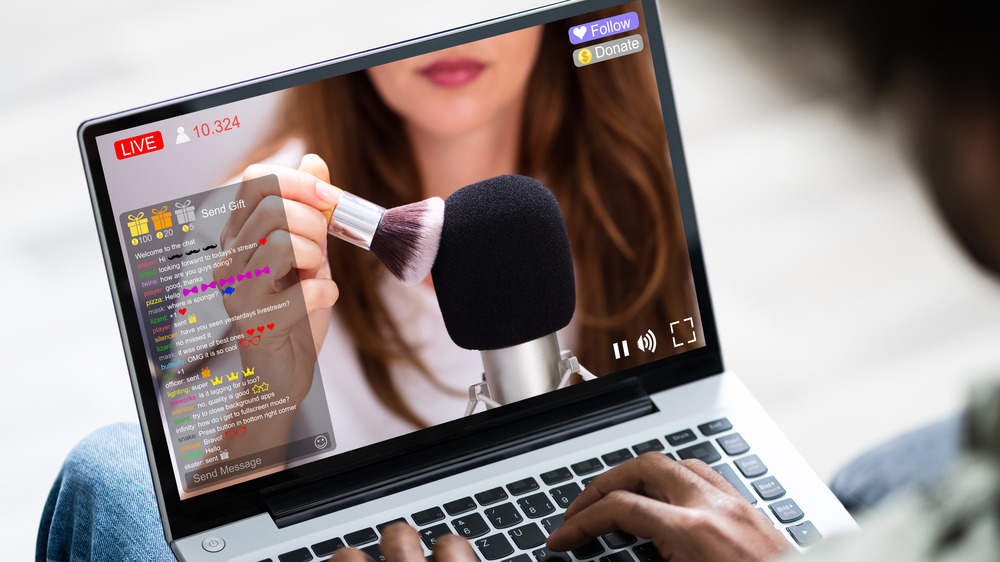What Is ASMR, And Can It Really Make You Feel Better?
Ever had the pleasant, but difficult-to-describe sensation of tingles running down your arm, neck, or back? If so, you may have experienced ASMR, a phenomenon flooding YouTube channels with videos of people whispering, tapping on glasses, and even chewing gum (via The New York Times Magazine).
Coined by Jennifer Allen, a researcher looking to define the elusive feeling, ASMR stands for Autonomous Sensory Meridian Response. The lengthy name was specifically chosen to reflect both the fleeting nature of the sensation as well as to call to mind the subtlety of energy healing pathways used in alternative medicine.
Largely outside of the scientific community, but with thousands and thousands of anecdotal reports, ASMR quickly began taking off on YouTube. Previously a random occurrence, content creators began putting together videos with specific triggers designed to produce what Sleep.org defines as "the euphoric tingling sensation people feel in response to certain visuals and sounds." As of 2019, over 500 videos are released per day, The New York Times Magazine estimated.
Does ASMR really work?
ASMR videos are typically designed to target a specific symptom or experience. These are usually tagged in the title of the video, and include hangovers, frustration, anxiety, depression, pain, stress, and insomnia. However, there is very little scientific support backing these claims of ASMR. One study published in PeerJ noted a likely correlation between ASMR and synesthesia, an experience in which people experience a stimulus in more than one of the senses (via Heathline). Another small sample studied in Social Neuroscience conjectured that ASMR was the result of a complex blend of experiences triggered by the relaxation response. It's interesting to note that the individuals reporting these symptoms are described as "having" ASMR, as opposed to experiencing it — which means that the stimuli may not work for everyone (via Health). It's unclear how many people have ASMR.
Although ASMR isn't backed in an extensive body of science, the videos of people whispering and tapping likely won't hurt you. Sadie Bingham, a clinical social worker specializing in anxiety, explained to Healthline that, "any time an experience doesn't cause harm to you or anyone else, and may produce a sense of well-being, it's considered beneficial from a therapeutic standpoint." So it may be worth a try.


